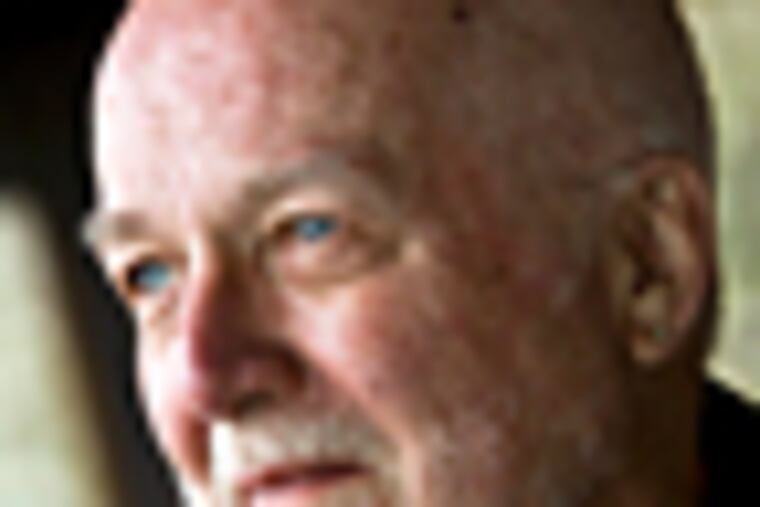Russell Banks, happily, is back on his game
For the last 25 years or so, Russell Banks has been one of our nation's most celebrated and reliably rewarding fiction writers.

Lost Memory of Skin
By Russell Banks
Ecco. 432 pp. $25.99
nolead ends nolead begins
Reviewed by Kevin Grauke
For the last 25 years or so, Russell Banks has been one of our nation's most celebrated and reliably rewarding fiction writers.
His first great novel, 1985's Continental Drift, was followed by two even greater novels, 1989's Affliction and 1991's The Sweet Hereafter, which were themselves followed by two very good novels, 1995's Rule of the Bone and 1998's Cloudsplitter. The Darling, in 2004, was arguably Banks' weakest novel in years, but no particular cause for distress. The same cannot be said for its follow-up, however, 2008's The Reserve, melodramatic piffle that must have left the author's many fans scratching their heads, wondering what had become of their harsh and gritty realist, their chronicler of hard lives and tough choices. So now, three years later, Banks returns with a new novel, and the question is this: Will it be a return to form or will the decline continue?
Lost Memory of Skin is the tale of the Kid, a rather slow-witted and socially stunted man in his early 20s who makes his home - not by choice, but by necessity - under the Claybourne Causeway in a Florida city that closely resembles Miami. As a registered sex offender who cannot live within 2,500 feet of any place that children congregate, he has nowhere else to go, since playgrounds and schools "are pretty much lurking everywhere." So, along with his pet iguana, Iggy, he spends his hours and days waiting for nine years to pass, which is how much longer he must wear the TrackerPal GPS locked onto his right ankle.
The circumstances of the Kid's conviction are not revealed until fairly deep into the novel, which allows Banks, who will discuss his book at 7:30 p.m. Tuesday at the Free Library of Philapelphia, to stoke the fires of our curiosity (what did this innocuous-seeming person do, and to whom?) as well as forestall our moral judgment of this character with whom we gradually begin to empathize.
In the meantime, Banks fills in the Kid's past as a loner raised (ostensibly) by a single mother who turned a blind eye to his intensifying obsession with Internet pornography, his sole interest. Once of age, he enlisted in the Army, only to be discharged in the middle of basic training for distributing DVDs of his favorite porn star to his fellow enlistees in a pathetic effort to make friends.
Although the Kid manages to hold down a job as a busboy for a while, his life is joyless, lonely, and static, at least until he meets the Professor. An outsider of sorts himself because of his enormous size and intimidating intelligence, the Professor, a university sociologist, climbs down beneath the causeway to research this closed-off world of homeless sex offenders. Not too surprisingly, the Kid is wary of the Professor's motives, as are we, and the novel is at its best as it traces their cagey give-and-take.
However, once the Professor's own shady history begins to overwhelm the narrative a little beyond the midpoint of the novel, Lost Memory of Skin loses its momentum, as well as its sense of purpose. Further exploration of the Professor's reasons for cultivating a relationship with the Kid in the first place is abandoned in favor of coyly piquing our curiosity about who the Professor may or may not have been in the past, and what he may or may not have done.
While these sections are engaging enough, particularly in how they examine the multiplicity of ways and reasons that we keep secrets (sometimes even from ourselves), they desert all pursuit of the thorniest - and most interesting - question posed by the novel (via the Professor's own theories): "When a society commodifies its children by making them into a consumer group, dehumanizing them by converting them into a . . . segment of the economy, and then proceeds to eroticize its products in order to sell them, [do] the children gradually come to be perceived by the rest of the community and by the children themselves as sexual objects"?
Nevertheless, despite the dissatisfying detour that Banks takes with the unresolved mysteries of the Professor's past, the novel's focus ultimately does return, as it should, to the Kid, and in gratifying fashion. His brief friendship with the Professor redeems him not only in our eyes but also in his own.
More importantly, Banks redeems himself. After his fairly serious misstep with The Reserve, Lost Memory of Skin signals that he has returned to contemplate the world that he knows best - the world of the sad, the lost, the marginalized, and the disenfranchised - and to compel us to do so as well.